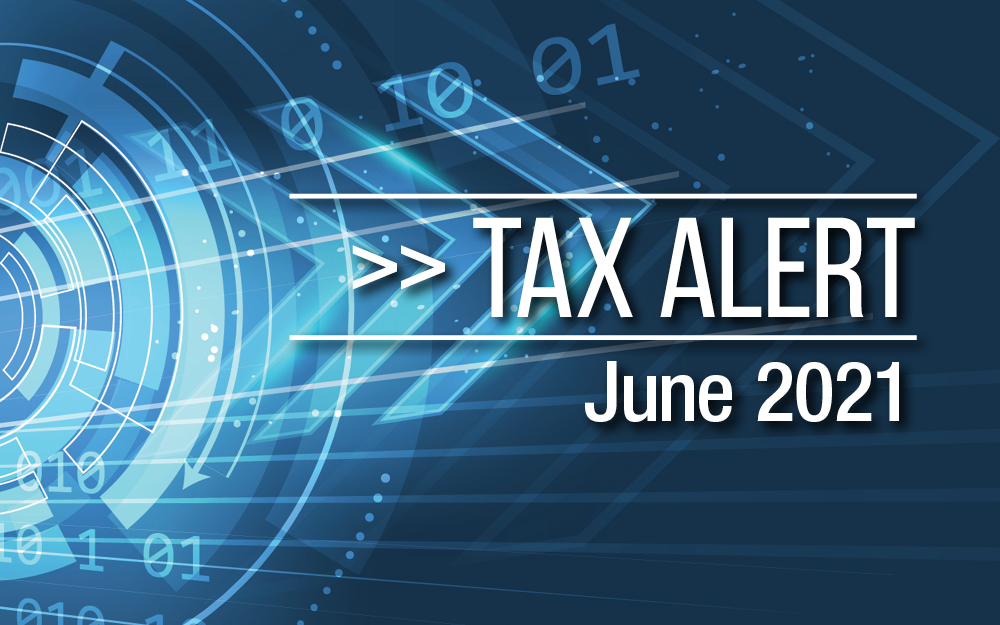
Winter 2021
It’s June which means winter has officially arrived. As we rug up and spend more time indoors, it’s a perfect time to get your financial house in order as another financial year draws to a close. And what a year it has been!
The local economic news in May was dominated by the federal Budget, and better-than-expected economic data. Australia’s budget deficit is smaller than expected just six months ago, at $177.1 billion in April. This was underpinned by rising iron ore prices, up 22% this year, and higher tax receipts from more confident businesses and consumers.
The NAB business confidence and business conditions ratings hit record highs in April of +26 points and +32 points respectively. New business investment rose 6.3% in the March quarter, the biggest quarterly lift in nine years. Housing construction is also going gangbusters, up 5.1% in the March quarter while renovations were up 10.8% thanks to low interest rates and government incentives. Retail spending is also recovering, up 1.1% in April and 25.1% on a year ago. The ANZ-Roy Morgan weekly consumer confidence index rose steadily during May to a 19-month high of 114.2 points, well above the long-term average. As a result of the pick-up in economic activity, unemployment fell from 5.7% to 5.5% in April.
In response to all this, the Reserve Bank lifted its economic growth forecast to 9.25% for the year to June and 4.75% for calendar 2021. If realised, this would be the strongest growth in 30 years, albeit rising out of last year’s COVID recession. The major sticking point remains wages. Wage growth was 0.6% in the March quarter but just 1.5% on an annual basis, below inflation. The Aussie dollar finished May at around US77c after nudging US79c earlier in the month.
Counting down to June 30
It’s been a year of change like no other and that extends to tax and superannuation. As the end of the financial year approaches, now is a good time to check some new and not so new ways to reduce tax and boost your savings.
With so many of us confined to our homes over the past year, the big deductible item this year is likely to be working from home expenses.
Home office expenses
If you have been working from home, the Australian Taxation Office (ATO) has introduced a temporary shortcut method which can be used for the 2020-21 financial year. This allows you to claim 80c for each hour you worked from home during the year.i
The shortcut method covers the additional running costs for home expenses such as electricity, phone, internet, cleaning and the decline in value of home office furniture and equipment.
Some people may get a better result claiming the work-related portion of their actual working from home expenses using the actual cost method.
Alternatively, if you do have a dedicated home office, you can claim using the fixed rate method. The fixed rate is 52c an hour for every hour you work at home and covers things like gas and electricity, and the decline in value or repair of office furniture and furnishings. On top of this, you may be able to claim the work-related portion of phone and internet expenses, computer and stationery supplies, and the decline in value of your digital devices.ii
Pre-pay expenses
While COVID has changed many things, some things stay the same. Such as the potential benefits of pre-paying next year’s expenses to claim a tax deduction against this year’s income.
Some examples are pre-paying 12 months’ premiums for your income protection insurance and work-related expenses such as professional subscriptions and union fees. If you are unsure what you can claim, the ATO has a guide for a range of occupations.
If you own an investment property, you might also consider pre-paying 12 months’ interest on your loan and other property-related expenses.
Top up your super
If your super could do with a boost and you have cash to spare, now is the time to check whether you are making the most of the contribution strategies available to you.
You can make tax-deductible contributions up to $25,000 a year, including Super Guarantee payments by your employer. You can also contribute up to $100,000 a year after tax. From July 1 these caps will increase to $27,500 and $110,000 respectively, so it’s important to factor this into decisions you make before June 30.
For instance, if you recently received a windfall and are considering using the ‘bring forward’ rule, you might consider holding off until after July 1. This rule allows you to bring forward two years’ after-tax contributions. By holding off until July 1 you could contribute up to $330,000 under the new limits.
Also increasing on July 1 is the amount you can transfer from your super account into a pension account. The transfer balance cap is increasing from $1.6 million to $1.7 million.
So if you are about to retire and your super balance is close to the cap, it may be worth delaying until after June 30. Finally, from 1 July 2020, if you are under age 67 you can now make voluntary contributions without meeting a work test. And if 2020-21 is the first year that you no longer satisfy the work test, you may still be able to add to your super if you had a total super balance below $300,000 on 1 July 2020.
Manage investment gains and losses
Now is a good time to look at your portfolio for any loss-making investments with a view to selling before June 30. Any capital loss may potentially be used to offset some or all of your gains.
Of course, any decisions to buy or sell should fit with your overall investment strategy and not for tax reasons alone.
For all the challenges of the past year, there are still many ways to improve your overall financial situation. So get in touch to make the most of strategies available to you to before June 30.
i https://www.ato.gov.au/general/covid-19/support-for-individuals-and-employees/employees-working-from-home
ii https://www.ato.gov.au/individuals/income-and-deductions/deductions-you-can-claim/home-office-expenses/

Tax Alert June 2021
The Government is continuing to support COVID-affected businesses by extending most of its pandemic inspired tax offsets and benefits. But at the same time the ATO has micro businesses like contractors who fail to declare all their income in its sights.
Here’s a roundup of some of the key developments when it comes to tax.
LMITO extended again
For individual taxpayers, an important tax change is the Budget announcement of another one-year extension to the current low- and middle-income tax offset (LMITO) for 2021-22.
This welcome decision will provide a valuable tax offset of up to $1,080 for individuals and $2,160 for dual income families as taxpayers repair their post pandemic finances.
Continuation of full expensing and loss carry-back
Business taxpayers should also be happy with the Budget announcement of an extension to the full expensing and loss carry-back measures. Under the full expensing rules, eligible businesses with an aggregate annual turnover of up to $5 billion are able to deduct the full cost of eligible depreciable assets until 30 June 2023.
Eligible companies can also carry-back tax losses from the 2022-23 income year to offset previously taxed profits as far back as 2018-19. This tax refund is available when you lodge your business tax return for the 2020-21, 2021-22 and 2022-23 financial years.
ATO tracks contractor payments
While the Budget provided tax incentives, contractors working in courier, cleaning, building and construction, road freight, IT, security and surveillance industries are increasingly under the tax man’s spotlight.
The ATO has announced it’s now combining data from its Taxable Payments Reporting System (TPRS) with its other data and analytical tools to ensure more than $172 billion in payments to contracting businesses have been properly declared. The ATO is now proactively contacting contractors identified as not declaring income reported by their customers through the TPRS.
New food and drink limits
The new reasonable weekly food and drink amounts businesses can pay an employee as a living-away-from-home allowance (LAFHA) have been released.
For this FBT year (starting 1 April 2021), the ATO considers it reasonable to pay an adult working in Australia a total food and drink expense of $283 per week. As an employer, if you pay more than this you will be liable for FBT on the LAFHA over this amount.
New tax umpire
Small businesses will now have more rights to pause or modify the collection of tax debts under dispute with the ATO.
The Budget included an announcement that small businesses will be able to apply to the Small Business Taxation Division of the Administrative Appeals Tribunal to have an ATO debt recovery action paused until their case is decided.
End to STP exemption
From 1 July 2021, the exemption for small employers on reporting closely held payees through the Single Touch Payroll (STP) system will end.
This exemption allowed small employers to not report payee information for any individuals directly related to the business. Closely held payees include family members of a family business, directors or shareholders of a company, or beneficiaries of a trust.
More support brewing
The Budget also recognised the importance of small business entrepreneurs and technology-driven innovators, with incentives to spur economic growth.
Brewery and distillation businesses will also benefit from a new measure giving them full remission (up from 60 per cent) of any excise paid on alcohol produced up to a new $350,000 cap on the Excise Refund Scheme from 1 July 2021.
The Budget also recognised the growth in local digital gaming businesses, with a new Digital Games Tax Offset. From 1 July 2022, eligible game developers will be able to access a 30 per cent refundable tax offset for qualifying Australian games expenditure of up to $20 million a year.
The Government also plans to provide tax incentives for medical and biotechnology companies by introducing a new ‘patent box’ from 1 July 2022. Income from patents will be taxed at 17 per cent, rather than the normal 30 per cent corporate rate.
The financial rewards of optimism
If it wasn’t already clear, the past 12 months certainly cemented the fact that life has a habit of throwing us the occasional curveball. The reality is we all face challenges, however approaching life with a positive mindset can help us deal with any issues we may face and improve our lives in many ways.
Having a positive outlook not only improves our health and wellbeing, it can also have a meaningful and very positive impact on our finances.
How optimism can improve our finances
If you have a cautious or anxious approach to your finances, such as worrying you’ll never have enough money or being wary of spending, it will likely come as a surprise to hear that being optimistic can improve your financial situation.
A recent study connected the link between financial well-being and an optimistic mindset, finding that people who classify themselves as optimists enjoy 62 per cent fewer days of financial stress per year compared to pessimists.
Superior financial well-being
When you are positive in your outlook, you are also much more likely to follow better financial habits in managing your money. Optimists tend to save for major purchases, with around 90 percent of optimists having saved for a significant purchase, be it a car, a house or an overseas holiday, compared to pessimists at just 70 per cent.i
However, optimism does not equal naivety and optimists still tend to have contingency plans in place for unforeseen events that may detrimentally impact their bottom line. Some 66 per cent of optimists had an emergency fund, compared to under 50 percent of the pessimists.i
This goes to show that maintaining an optimistic approach to your finances does still involve planning for the future. By being prepared, you’ll reduce the stress that comes from feeling the rug could be pulled from beneath you without a safety net.
Your career and earning capacity
An optimistic approach to life and your career leads to achieving greater career success and the financial rewards that come with being successful in your job.
Optimists are 40 percent more likely than pessimists to receive a promotion within a space of twelve months and up to six times more predisposed to being highly engaged in their chosen career.i
Changing your attitude
Knowing that optimism is great for your wallet and your health is one thing, but how do you shift your outlook? If you’re prone to worry, focussing on pessimistic outcomes or a bit of a sceptic, looking on the bright side of life can seem easier said than done.
It is possible to nurture optimism, and you get this opportunity every day. Cultivating optimism can be as simple as adopting optimistic behaviours.
So, what are the financial behaviours of optimists that we can emulate?
Optimists tend to be more comfortable talking about and learning about money and are more likely to follow expert financial advice than their more pessimistic peers.
Positive people display a correspondingly positive approach to their finances. They tend to put plans in place and have the courage to dream big. You don’t have to be too ambitious in how you carry out those plans, every small step you take will help you to get where you want to be.
Everyone experiences setbacks at various times, however optimists rise to these challenges, learning from their past mistakes and persisting in their endeavours. Don’t be too hard on yourself if you are experiencing difficulties. We all face challenges and during these times, focus on solutions rather than just the problems, be conscious of your “internal talk” and don’t be afraid to seek out support. It’s important to focus on what you can do differently going forward, this could be as simple as working towards a “rainy day” fund.
It’s never too late to change your outlook. By embracing optimism, you can reap the rewards that a more positive outlook provides.
i https://www.optforoptimism.com/optimism/optimismresearch.pdf/


